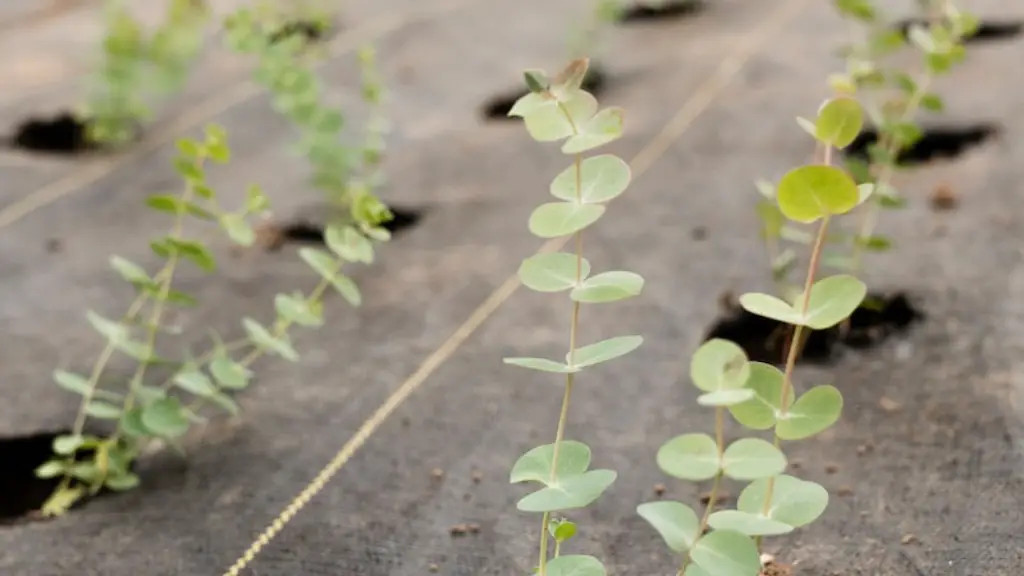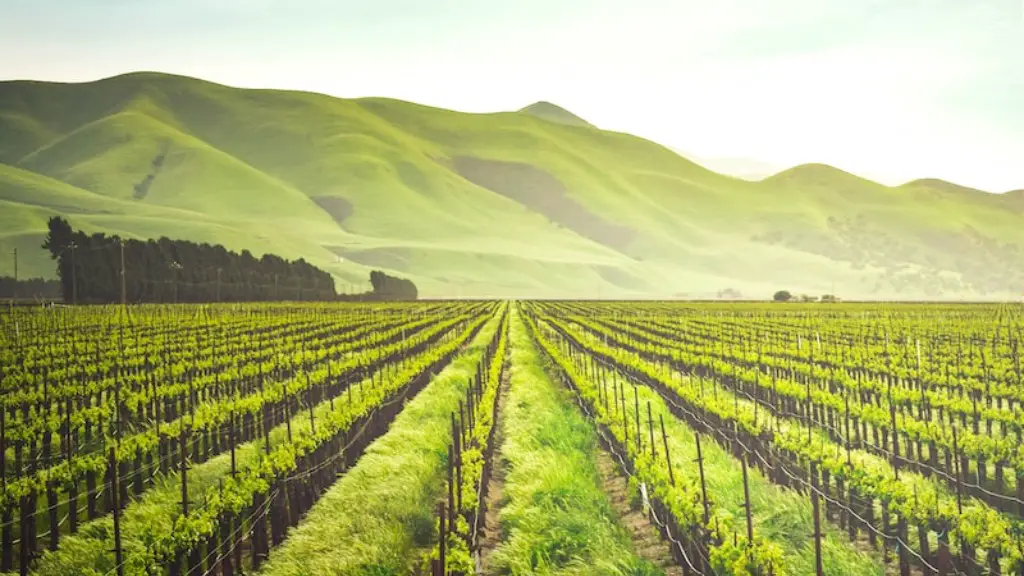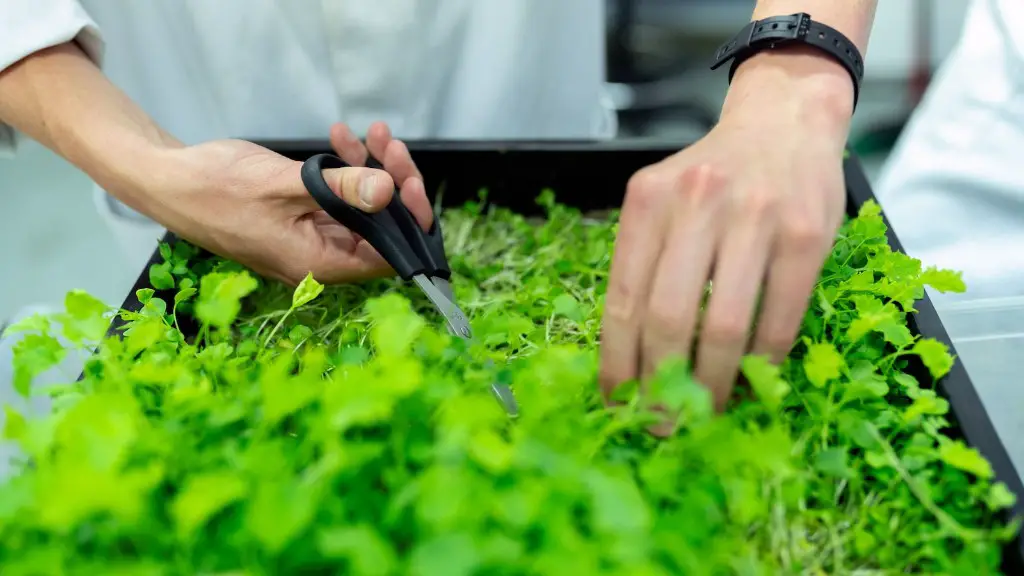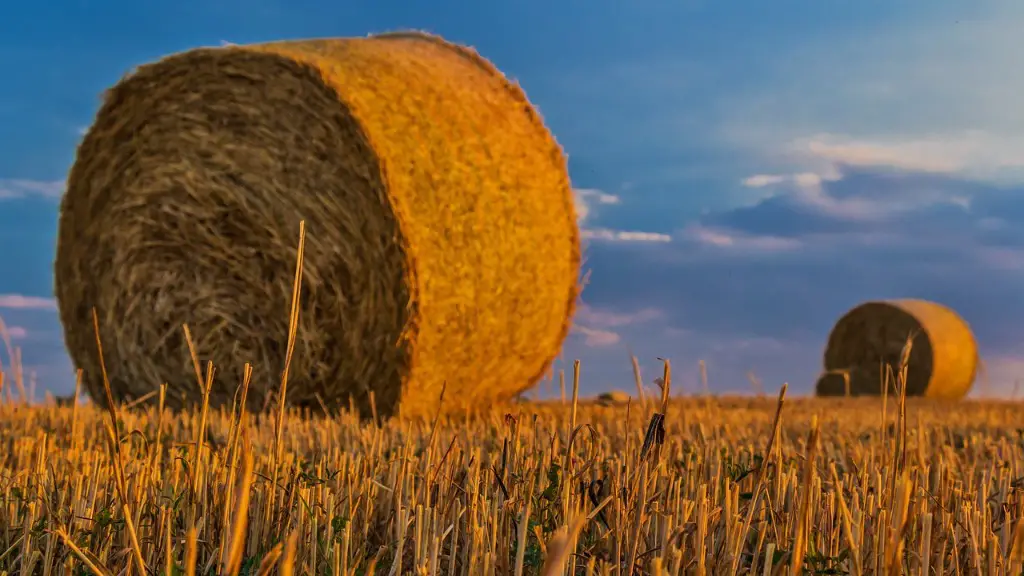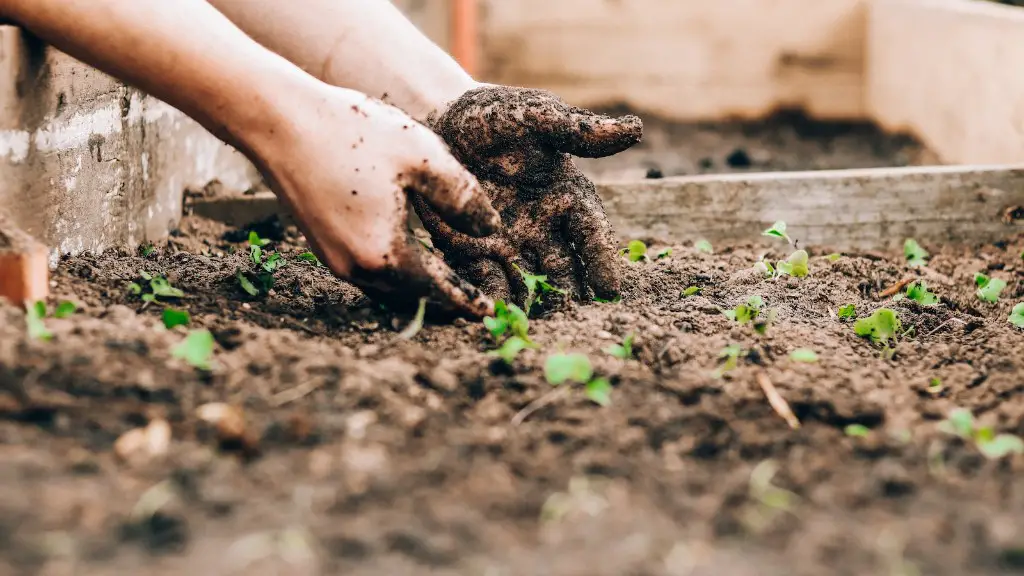Russia’s agriculture is a major contributor to the country’s economy. It employs approximately 12.1 per cent of Russia’s population and provides food resources for Russia and the rest of the world. Russia has a vast land area that is favourable for agriculture and livestock production. The climate in Russia allows for the cultivation of diverse crops. For centuries, Russia’s farmers have produced crops like rye, wheat, and oats, and raised animals such as cows, sheep, and pigs. Today, Russia’s agricultural activities have expanded to include the production of vegetables, fruits, potatoes, sugar beets, and sunflower seeds.
Russia’s agricultural system has been traditionally based on small, family-run farms. This system is known as “peasant farming” and it has been quite successful in Russia. However, a number of factors have made the system less sustainable in recent years. A decrease in government support, a growing population and a decrease in arable land have all contributed to the current state of Russia’s agriculture. Recent changes in the structure of Russia’s economy have also impacted the agricultural sector, with a greater emphasis on the production of raw materials and exports.
In recent years, the Russian government has taken measures to support the agricultural sector. In 2010, the government launched a program “Focus on Agriculture” which consists of measures that address a number of areas including agronomy and resource efficiency, investment, infrastructure and market access. The program seeks to support both small and large-scale farmers in order to improve productivity, diversify production and reduce economic risks. Additionally, the Russian government has taken steps to reduce prices of agricultural inputs and increase the availability of credit.
Russia has also taken steps to improve the quality of its agricultural products and exports. Quality assurance programs including the Integrated Quality Control System and the Ecological Agricultural Laboratory have been implemented to ensure the quality and safety of agricultural products in Russia. In recent years, Russia has also established organic farming standards in order to increase the amount of organic food produced in the country. These steps have enabled Russia to increase its share of the world’s agricultural market, becoming one of the top 10 agricultural exporters in the world.
In conclusion, Russia’s agriculture is an essential component of the country’s economy. Russia has a long and productive agricultural history and has taken steps to ensure that the sector is sustainable and productive. The government has implemented a variety of measures, including support programs and initiatives to improve the quality of agricultural products, in order to ensure continued growth in the sector.
Agricultural Production
Russia’s agriculture sector is highly efficient and produces a variety of crop and animal products. Russia is the world’s largest exporter of wheat and the third largest exporter of barley. Other major crops produced in Russia include potatoes, vegetables, fruits, and sunflower seeds. In addition to these crops, the Russian agricultural sector produces significant amounts of dairy products, pork, beef and poultry. Russia is a major player in the global dairy industry, with a large share of the world’s total milk production coming from Russian farmers.
Russia’s agricultural production relies heavily on the use of technology and modern techniques. Many farmers use modern equipment to improve crop yields and to monitor weather patterns. Greenhouses provide a valuable environment in which to grow crops and improve food security as well. Irrigation systems are often employed to ensure crop success in often dry areas. As the agricultural sector in Russia continues to advance, technology and modern techniques will continue to play an important role in the sector’s success.
Russia’s agricultural sector is highly dependent on exports and foreign markets. Russia is one of the world’s leading exporters of wheat and other agricultural products such as barley, sunflower seeds and dairy products. The majority of Russia’s crop products are exported to Europe, the Middle East and Asia, while its dairy products are exported to many other countries around the world. The ability to export agricultural products has been essential to the success of Russia’s agricultural sector.
Russia’s agricultural sector faces numerous challenges, however. Low global commodity prices, a decrease in government support, as well as a decrease in arable land has all had an impact on Russia’s agricultural sector. Additionally, climate change has had a significant impact on agriculture in the country. Russian farmers have faced extreme weather conditions in recent years, including floods and droughts, that have caused significant losses for the agricultural sector. Despite these challenges, Russia’s agricultural sector remains a significant contributor to the country’s economy.
Agricultural Investment
Russia’s agricultural sector has been the recipient of significant investment from both the public and private sectors in recent years. The government has put measures in place to support agricultural investment, including the agricultural tax freeze and the simplified status of enterprises in rural areas. Additionally, the Russian government has established the Rosselkhozbank to provide credits and loans to agricultural companies and the National Agency for Innovative Development to encourage the diversification of the sector.
Furthermore, there has been a noticeable increase in the amount of private investment in the agricultural sector in Russia. Private investors have been attracted to the sector due to its potential for growth and the opportunities to tap into global markets. Private investors have been investing in technologies such as precision farming and in export-friendly crop varieties. Domestic and foreign investors are also seeking to obtain land for the development of large-scale agricultural production.
The foreign direct investment flow into Russia’s agricultural sector has been steadily increasing in recent years, with more investors from countries such as the United States, the United Kingdom and Germany expressing an interest. Due to its economic importance and its potential for growth, Russia’s agricultural sector is becoming an increasingly attractive destination for foreign investment.
Domestic investment in the agricultural sector has particularly been driven by the rise of agribusinesses. These companies have invested heavily in modern technologies, equipment and new production capabilities, helping to rapidly transform the sector. Furthermore, agribusinesses have also been investing heavily in research and development in order to produce high-quality products and expand into new markets.
Overall, the agricultural sector in Russia has seen increased investment in recent years, both from the public and private sectors. This investment has helped to modernize the sector, expand its production capabilities and introduce new technologies. The increased investment in the agricultural sector will have a significant impact on the sector’s future development and success.
Agricultural Challenges
Russia’s agricultural sector faces a number of challenges, both domestically and internationally. These include challenges related to climate change, a decrease in the availability of arable land and the globalization of agricultural markets. In addition, Russia’s agricultural sector is facing increasing levels of competition from other countries. As a result, it is essential that the sector develops new strategies to ensure its long-term success.
One of the most pressing challenges facing Russia’s agricultural sector is the impact of climate change. Recent extreme weather patterns, including floods and droughts, have caused significant losses for the agricultural sector. As a result, it is essential that the sector develops strategies to address the impacts of climate change. This could include the development of adaptive strategies such as crop diversification, improved irrigation management and the use of greenhouse technologies.
The Russian agricultural sector is also facing declining levels of arable land due to urbanization, industrialization, and deforestation. This has had an impact on the sector as crop yields have fallen as a result. As a result, it is important that the sector uses more efficient farming practices in order to maximize the productivity of land. Additionally, the sector must look to new technologies and approaches such as precision farming and the use of cover crops in order to increase crop yields.
The globalization of the agricultural market presents a major challenge for Russia’s agricultural sector. The sector has been facing increasing levels of competition from other countries, particularly those in the European Union. As a result, Russia’s agricultural sector needs to develop strategies to address these challenges, such as improving export capabilities, developing value-added products and increasing the marketing of agricultural products.
Overall, Russia’s agricultural sector faces numerous challenges, both domestically and internationally. Despite these challenges, it is possible for the sector to succeed if the right strategies are employed. It is essential that the sector develops new approaches in order to ensure its long-term success.
Conclusion
Russia’s agriculture is an essential component of the country’s economy and is facing numerous challenges. However, there is potential for the sector to succeed if the right strategies are employed. Domestic and foreign investments, as well as technological advances, have the potential to transform the sector and help it to realize its full potential. In order to ensure the sector’s continued success, it is essential that the sector adopts new approaches in order to address the challenges it is facing.
